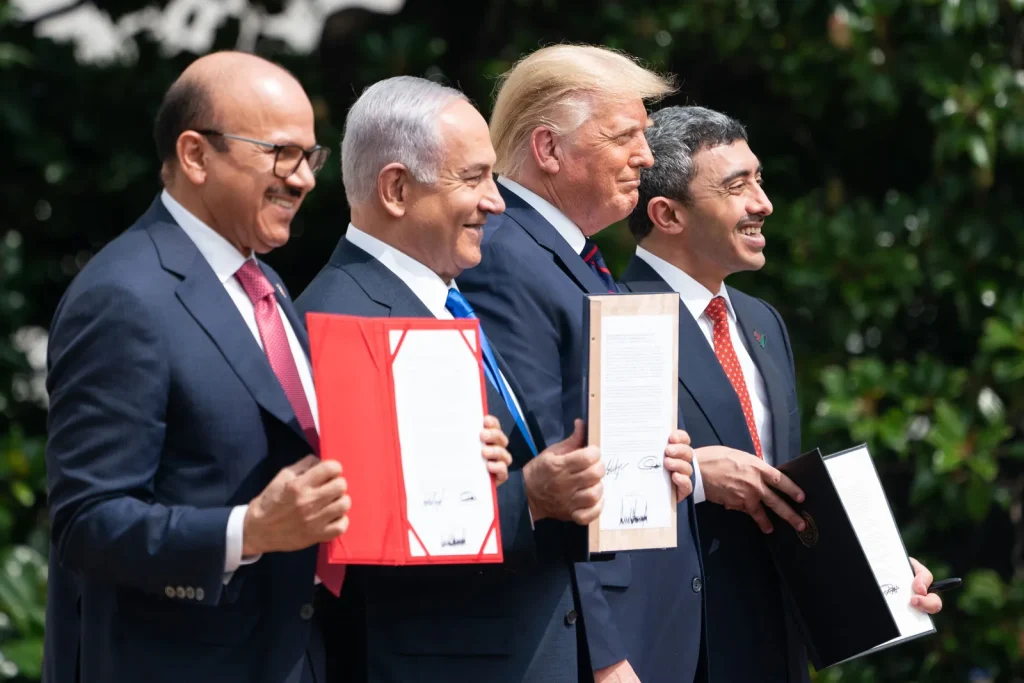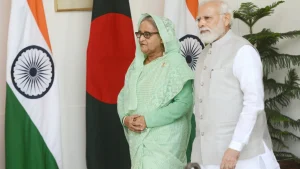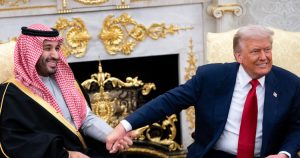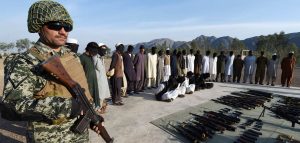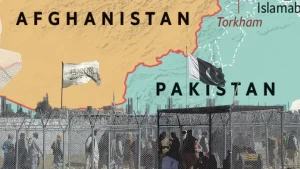The U.S. President Donald Trump has lately again accentuated the Abraham Accords and called on Middle Eastern nations to normalize relations with Israel under them. However, it needs to be realized that he is making such a call at a time when the Middle Eastern security landscape is extremely volatile. Israel is intensifying its military operation in Gaza with the aim of taking the full control of the Strip, which is stirring outrage across the Arab and Muslim world, thereby rendering the atmosphere tense.
On the other hand, the recent 12-day war between Israel and Iran has laid bare the fragile nature of region’s security order, where simmering hostilities can erupt into crisis at any time, exhibiting the limits of truncated diplomatic overtures. At the same time, the Iranian nuclear deal, once termed an important pillar of regional stability, is hanging by a thread. In such a milieu, the Abraham Accords, which are being marketed as a historic breakthrough, may in fact contribute to greater instability as they bypass the region’s core grievances, thereby risking entrenching divisions and fueling a cycle of mistrust.
It cannot be ignored that Trump’s approach to the Middle East appears to be transactional which will ultimately lead to a greater compromise on the genuine conflict resolution. In the past, some Arab Nations established relations with Israel under the Abraham Accords; however, they ignored the most important issue in the region: the Palestinian question. In this way, Iran, a major stakeholder in the region, was completely excluded from any such processes. The Israel-Iran factor was not even technically invoked. In this manner, the deeper ideological and security divisions that define the Middle East were overlooked. The accords were, therefore, built on a narrow base, where symbolic gestures took precedence over the structural transformations needed for lasting peace.
By attempting to isolate Iran and strengthen alliances that explicitly sought to counter it, the Accords appeared to have amplified Tehran’s sense of strategic encirclement. It cannot be denied that it has pushed Iran further into a defensive posture. As a result, tensions were not reduced; rather, they risked escalating and becoming further embedded in the regional structure. In doing so, the Accords institutionalized selective inclusion, offering partnership to some while marginalizing others. Without accompanying these moves with genuine political reconciliation, such arrangements, over time, can further aggravate public grievances, shape collective consciousness against the existing order, and intensify resistance to it.
As the Abraham Accords were primarily concluded between the elites of certain nations, the aspirations of the masses were not taken into consideration. Therefore, such frustration can morph into a political movement which can upend the region’s status quo at any time in the future.
Israel’s unmatched military capabilities, supported by the West, imbalance the power equation in the region. These include advanced conventional forces and an undeclared nuclear arsenal, which have long fueled a persistent security dilemma, particularly for Iran.
Israel’s policies and military occupation have created a widespread perception that Israel itself is the primary obstacle to peace in the Middle East. The collective consciousness across the region, and much of the world, increasingly views Israel’s presence as a destabilizing force, one that fuels endless conflict and makes lasting coexistence impossible. It cannot be ruled out that as long as Israel remains and maintains its current oppressive and expansionist policies, the cycle of resistance and repression will continue and amplify, ensuring that true peace remains out of reach.
Israeli terms its military build-up as an existential necessity. Western powers, including the U.S. and the European Union, have ensured these views are reinforced by offering incessant diplomatic protection and arms transfers, effectively endorsing an unsustainable status quo. Such policies remain at the heart of the current instability with which the region is grappling.
However, the ongoing Gaza genocide has conspicuously shown that while Israel might have the capacity to destroy infrastructure with the help of the West, it cannot silence resistance to its oppression. The fact cannot be denied that the more the Palestinian aspirations are denied, the more resistance grows across the region and across the world, not only in the form of armed struggle but also through political mobilization, boycott campaigns, and a steady shift in global opinion, even within international institutions like the United Nations.
The change in the regional consciousness among masses after witnessing genocide live has embedded issues that will amplify inherent consciousness, which can translate into a widespread anger potentially endangering the status quo in the region.
This all, in the longer run, will haunt Israel, thereby constantly questioning its existence and actions in the region.
The idea of a nuclear-free zone in the Middle East has been discussed for decades and could offer a way to rebalance security perceptions, which could pave the for a grand security dialogue among regional stakeholders. However, such overtures require political will from all parties, an important prerequisite for lasting peace that has been consistently absent. If the objective is true stability, then perpetuating occupation while denying any credible political horizon is counterproductive to lasting peace in the region.
In the same way, such an exclusionary approach is hampering Iranian nuclear deal. By attempting to push Iran, a key regional power, against the wall, Washington and its allies have weakened their own credibility as mediators. While the U.S. keeps publicly asserting that it supports diplomacy, its open support for Israeli military actions, including strikes on Iranian nuclear facilities, has intensified skepticism across the region. This has lent credence to fears that American crisis management is driven less by a commitment to peace and more by political alignment with one side. This ultimately prevents the development of a long-term, balanced, and inclusive regional policy.
Therefore, the path forward cannot be carved through the reinforcement of exclusive alliances that ignore rudimentary regional grievances. What is needed is an inclusive diplomatic framework that engages all regional stakeholders, addresses the full range of regional security concerns, and rebuilds trust in multilateralism.
Peace cannot be achieved through normalization agreements that sideline core disputes, nor can it be sustained in an environment where military force is viewed as a substitute for negotiation and diplomacy. Tactical agreements like the Abraham Accords, which prioritize short-term calm over lasting transformation may yield temporary results, yet they will eventually collapse under the weight of unresolved tensions.
To truly end the Middle Eastern conundrum, the international community must commit to comprehensive security dialogues that reflect the complex realities of a divided Middle East. The future of the Middle East cannot rely on unilateral gestures or symbolic accords alone. It will depend on sustained engagement that is inclusive in scope and anchored in the principles of sovereignty, equality before the law, and mutual recognition.
Peace is only possible through a process that confronts, rather than avoids, the deepest sources of the regional turmoil, which has potential to intensify in the future and impact the whole world. Therefore, the Abraham Accords do not promise a peace that is durable, legitimate, or capable of withstanding the pressures of history and geopolitics.




